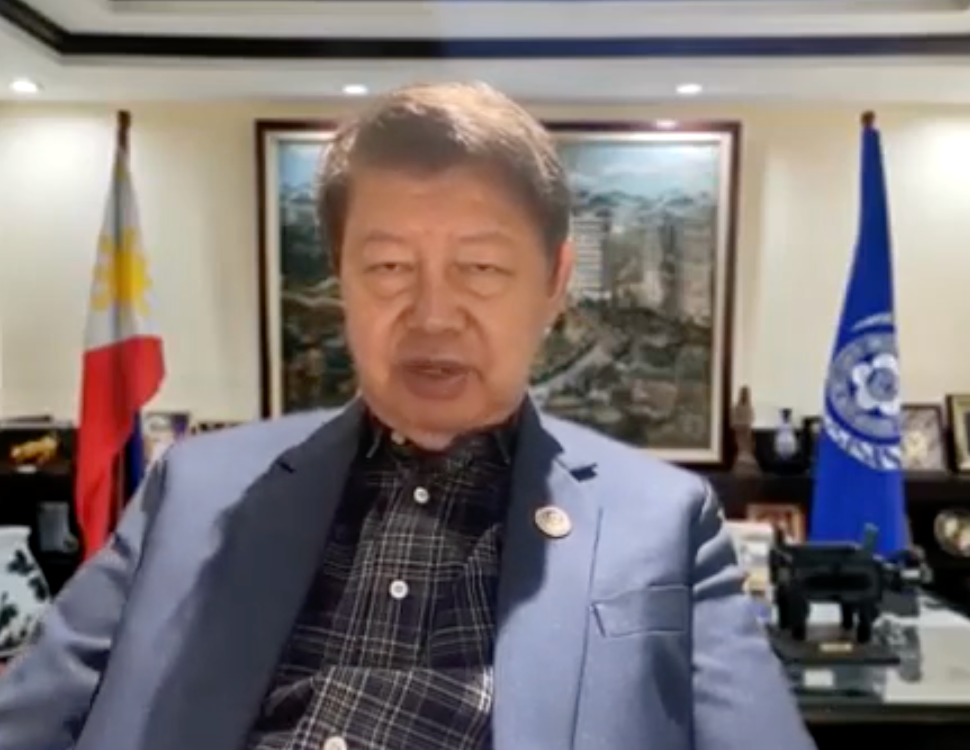Tripartite Agreement for signature on Easter Sunday
- Melo Acuna
- Apr 2, 2021
- 3 min read
FFCCCII optimistic the tripartite agreement up for signing by Easter Sunday
MANILA – The awaited agreement between the Federation of Filipino-Chinese Chambers of Commerce and Industry (FFCCCII), the Philippine Government and Sinovac will be signed by Easter Sunday.
“We are very excited we will be signing the agreement on Easter Sunday. We received a call from Malacañang informing us of President Rodrigo Duterte hope the 500,000 doses reach the country this month,” said Dr. Henry Lim Bon Liong, FFCCCII president in an online interview over COFFEE CHAT (Melo Acuna Reports) late Friday morning.
He explained they originally wanted 750,000 to a million doses to which Sinovac earlier agreed. However, delays took place and Sinovac needed to address back orders hence the reduction to 500,000 doses.
“We are negotiating for another batch. Chinese Ambassador to Manila Huang Xilian promised to help us in the negotiations,” Dr. Lim Bon Liong added.
Asked if the Sinovac vaccines would be safe for persons over 59 years old, Dr. Lim Bon Liong said while it is recommended to people from 18 to 59 years old, it does not mean it is prohibited.
He said former Hong Kong SAR’s first chief executive and now vice-chairman of the Chinese People’s Political Consultative Conference, now 83 years old, received his first Sinovac jab last February 27,2021. He added Indonesian Vice President Ma’ruf Amin, now 77 years old was inoculated with Sinovac along with other senior officials from several Middle Eastern countries.
He added some people may say the Filipino-Chinese community is “jumping the line” but he explained what they’re doing is opening more lines because of the prevailing shortage for COVID-19 vaccines. He explained it is much better to get more people vaccinated simultaneously.
“We look forward to the Department of Health’s and the Food and Drug Administration’s approval of the use of the Sinovac vaccines for people above 59 years old. A waiver may be signed by the interested parties,” the FFCCCII president said.
The Federation of Filipino-Chinese Chambers of Commerce and Industry, he said it is important to try to get a new allocation aside from the government’s 25 Sinovac million doses. He said some five million doses will reach the Philippines by June while the balance of 20 million will be up for delivery during the third and fourth quarters of the year.
Asked of the vaccine rollout, Dr. Lim Bon Liong said they will use Zuellig as logistics provider, just like AstraZeneca and Moderna. There will be an application that could be used by everyone and they Federation will see who gets to be prioritized.
The tripartite agreement hopes to complement the government’s efforts to inoculate more people and for Filipino-Chinese businessmen to help their employees, the economic frontline workers. With their 500,000 doses, they hope to inoculate at least 250,000 individuals.
He said the government expects to get another million from Sinovac by May this year.
Asked if Sinopharm would also provide its vaccines to the Philippines, Dr. Lim Bon Liong said the FDA has not issued its Emergency Use Authorization (EUA) yet.
Told of the possibility the government will extend tight measures to contain the spread of the deadly virus, the FFCCCII president described the likelihood as “unfortunate.” However, he added the Federation respects the decision of the President and the entire government, but everyone must also take into consideration the country is lagging behind ASEAN neighbors due to the longest lockdown compared to Thailand, Vietnam, and Indonesia.
“We have to be very prudent but at the same time, we have to follow the decision. Look at Indonesia, they ordered early for 80 million doses and even Brazil ordered millions of doses,” he explained.
Told of the ongoing disparity in the distribution of vaccines as underscored by World Trade Organization Director General Ngozi Okonjo-Iweala who was quoted saying if vaccine-manufacturing countries could not deliver vaccines to poorer countries on time, at the very least they should share the technology for countries to produce the vaccines on their own, Dr. Lim Bon Liong said manufacturing vaccines would not require big space.
He said there were interested parties to have their vaccines made in the Philippines, but some were “demanding so much from them.” He said three companies began their operations in Thailand, Brazil and even Indonesia.
Vaccine is the easiest to duplicate because unlike big manufacturing areas, he said.
He added vaccine joint venture agreements could have been forged but “according to sources, we are demanding so much from them.” Thailand and Brazil and even Indonesia started their own production.
Siam Bioscience signed agreement with AstraZeneca while Indonesia has signed its agreement with Sinovac and produced 250 million doses of COVID-19 vaccines last December. Brazil has already begun producing its own vaccines. (Melo M. Acuña)

Dr. Henry Lim Bon Liong, President, Federation of Filipino-Chineses Chambers of Commerce and Industry (FFCCCII). (Screen grab from COFFEE CHAT/Melo Acuna Reports)



Comments